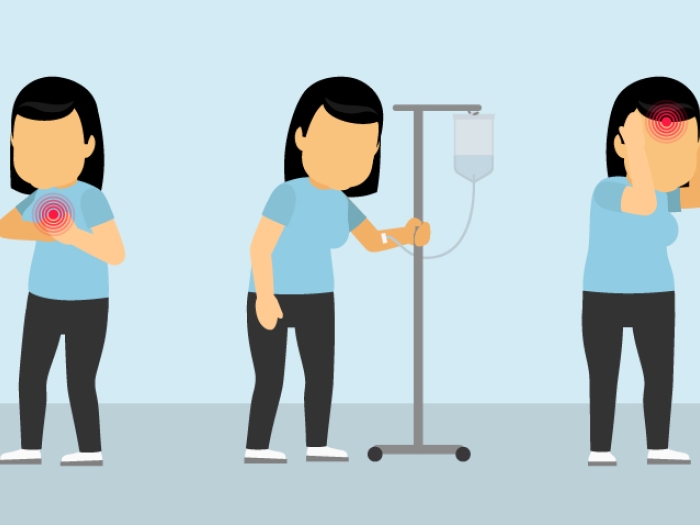Research and Policy Media Relations Manager
Gavin draws on more than 25 years of experience in communicating about science, medicine and health policy. She focuses mainly on the health services research done by members of the U-M Institute for Healthcare Policy and Innovation, who work to understand and improve the safety, quality, equity and affordability of health care. As part of the Michigan Medicine communication team, she has lead responsibility for primary care and mental health topics. Contact: [email protected]; Twitter: @Karag


Health Lab
Many grandparents’ medicines aren’t secure enough around grandchildren, according to the National Poll on Healthy Aging.

Health Lab
As health care providers push to reduce low-value care, they should put more emphasis on assessing unintended consequences, listening to patients and providers, and measuring outcomes, a U-M-led review finds.

Health Lab
A new tool “scores” patients based on the impact of their multiple chronic conditions. The tool reveals that those with higher scores have faster memory loss, a higher suicide risk and a higher overall risk of death.

Health Lab
A U-M study found that type 1 diabetes rates were one-third lower in children who received all doses of the rotavirus vaccine.

Health Lab
As interest grows in addressing pediatric firearm injuries — the second-leading cause of death for young people, researchers list the most urgent priorities for study.
News Release
The opioid epidemic has become a public health crisis in the U.S. While primary care physicians have been writing fewer opioid prescriptions over the last several years, new opioid prescriptions by surgeons increased 18 percent from 2010-2016.

Health Lab
Most of those overdosing haven’t received prescription opioids recently, suggesting a need for more opioid use disorder screening and treatment.

Health Lab
New research shows that a combination of two immune-system factors could open up new avenues for treating diabetes and obesity.
News Release
The University of Michigan Board of Regents today approved Justin B. Dimick, M.D., M.P.H. as the next chair of the Department of Surgery at the U-M Medical School.

Health Lab
Many people in their 50s and early 60s buy supplements or do puzzles in hopes of staving off memory loss and dementia. But without mentioning their concern to health providers, they may miss out on proven strategies that protect brain health.

Health Lab
A new study finds that the long work hours of an intern’s first year of medical residency are associated with accelerated cellular aging. It’s the first longitudinal study of people exposed to such prolonged stress.

Health Lab
Insurance records reveal patterns of opioid prescribing to patients whose family members “shop” for opioids from multiple sources

Health Lab
Thirty-five times more white patients than patients of color receive buprenorphine, and three-quarters of prescriptions go to those who pay cash or have private insurance
News Release
With 130 Americans dying every day from opioid overdoses, and 2 million suffering from disorders related to prescription and non-prescription opioids, the University of Michigan is ramping up efforts to make an impact on the opioid epidemic through the research and expertise of its faculty and their teams.
News Release
What if a stroke could be treated faster and more completely? Or what if cancer treatment options could be improved for patients with resistant tumors?